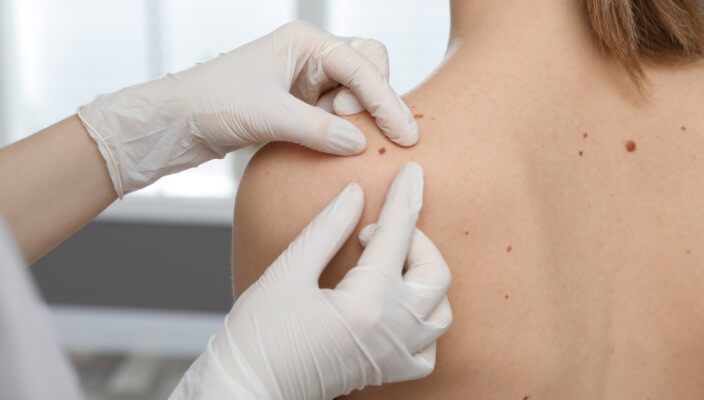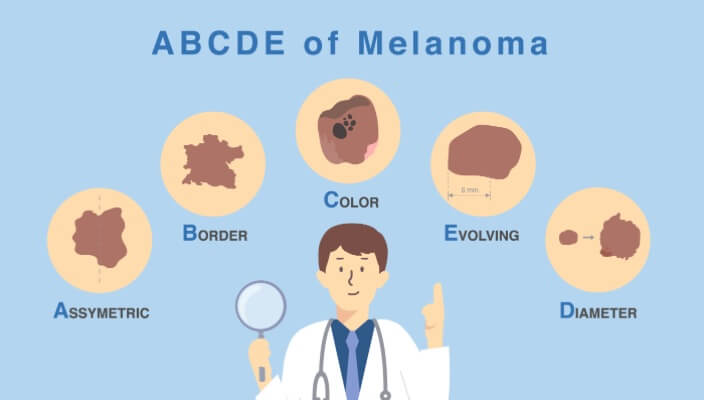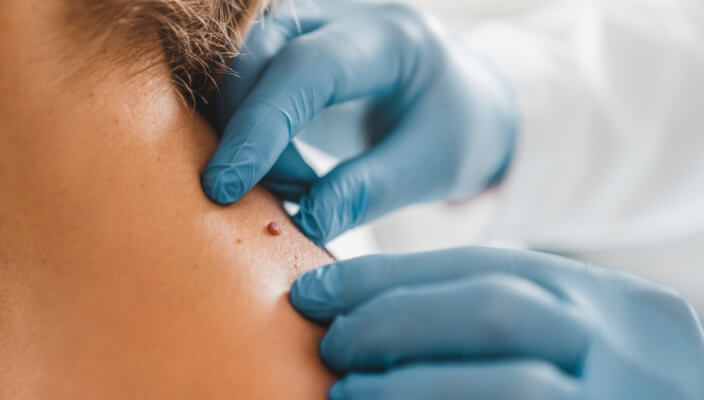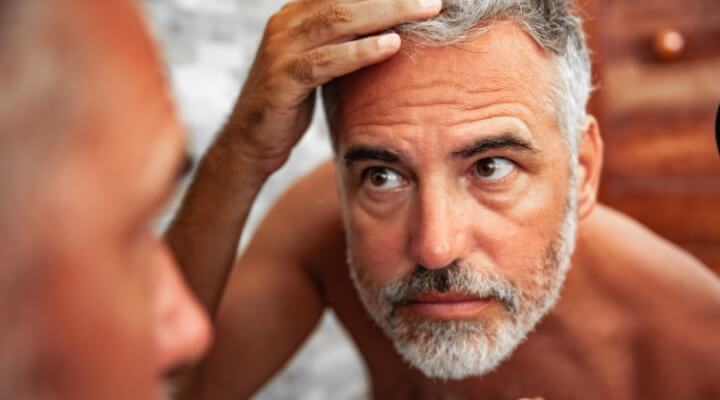Antioxidants and Your Skin: A Defense Against Age Spots
Are you noticing unwelcome age spots on your skin?
 We at the Skin Surgery Center understand how these blemishes can affect your self-esteem. This article will delve into the potency of antioxidants in skin care, as recommended by the American Academy of Dermatology, and how they can be a formidable ally against age spots. We'll discuss effective therapies, including laser treatments, and provide guidance on maintaining radiant skin post-treatment. By reading on, you'll learn how to rejuvenate your skin, giving it the care it deserves, and see how our specialized treatments can help restore your skin's youthful appearance.
We at the Skin Surgery Center understand how these blemishes can affect your self-esteem. This article will delve into the potency of antioxidants in skin care, as recommended by the American Academy of Dermatology, and how they can be a formidable ally against age spots. We'll discuss effective therapies, including laser treatments, and provide guidance on maintaining radiant skin post-treatment. By reading on, you'll learn how to rejuvenate your skin, giving it the care it deserves, and see how our specialized treatments can help restore your skin's youthful appearance.
The Power of Antioxidants in Skin Care
At our Skin Surgery Center, we understand the crucial role antioxidants play in maintaining skin health and preventing age spots. These powerful substances work tirelessly to shield skin cells from the damaging effects of ultraviolet rays, which can lead to increased pigment and premature aging. By incorporating antioxidants into your skin care regimen, you're providing an essential line of defense against environmental aggressors.
Our expertise in dermatological treatments has shown that antioxidants can significantly reduce the appearance of age spots. When combined with professional procedures like chemical peels or dermabrasion, antioxidants help to fade these pigment changes more effectively. This synergistic approach ensures that not only are existing spots treated, but the skin is also fortified against the formation of new ones.
We've seen firsthand how antioxidants can improve the overall texture and tone of the skin. Patients who are diligent with their antioxidant-rich skin care often report a noticeable difference in the resilience and vibrancy of their complexion. This is because antioxidants go beyond pigment correction; they contribute to the health and longevity of skin cells.
Our commitment to your skin's health drives us to recommend products and treatments that contain antioxidants. We believe in their power to not only combat age spots but also to enhance the skin's natural healing processes. Trust in the science of antioxidants to keep your skin looking youthful and radiant, while safeguarding it from the harsh realities of ultraviolet exposure.
Treating Age Spots Effectively With Antioxidants
At our Skin Surgery Center, we advocate for a comprehensive approach to treating age spots, or lentigo, that extends beyond traditional skin care. We'll delve into the efficacy of topical antioxidant treatments, the skin benefits of an antioxidant-rich diet, and the advantages of combining these with professional dermatological procedures. Our focus is on safeguarding human skin from cancer-causing UV rays and enhancing overall skin health, with sunscreen playing a pivotal role in this protective strategy.
Topical Antioxidant Treatments for Age Spots
We at the Skin Surgery Center have found that topical antioxidants are a formidable ally in the fight against age spots, commonly referred to as liver spots. These treatments target the excess melanin that contributes to these darkened patches, often caused by prolonged sun exposure, particularly in individuals with light skin. Our patients have experienced significant fading of these spots, attributing this success to the diligent application of antioxidant-rich creams and serums.
Moreover, the preventive potential of topical antioxidants extends to reducing the risk of melanoma and other skin malignancies. By neutralizing free radicals and minimizing UV damage, these treatments help maintain skin cell integrity. We've observed that even those with a predisposition to freckles, a marker of UV sensitivity, benefit from the protective qualities of antioxidants, which aid in maintaining a more even skin tone and texture.
Antioxidant-Rich Diets and Their Skin Benefits
We at the Skin Surgery Center recognize the profound impact an antioxidant-rich diet can have on human skin color and overall skin health. Consuming foods high in antioxidants, such as berries, nuts, and leafy greens, can help protect against skin cancer and mitigate the effects of UV radiation on dark skin. Our patients often report improved skin tone and a reduction in age spots when they complement their topical treatments with a diet abundant in these vital nutrients.
As physicians dedicated to skin care, we advise our patients that what they eat is just as important as the products they apply. A diet rich in antioxidants can bolster the skin's natural defenses, aiding in the prevention of cellular damage and supporting the skin's ability to repair itself. This internal approach to skin health is a critical component of our comprehensive strategy to combat age spots and maintain the resilience of the skin against environmental stressors.
Combining Antioxidants With Professional Treatments
At our Skin Surgery Center, we've observed that patients benefit greatly when we integrate antioxidants with professional dermatology treatments. For instance, following a laser therapy session aimed at reducing age spots, we encourage the application of antioxidant serums to enhance the healing of the epidermis and prevent further oxidative stress. This combination approach not only addresses the existing disease of the skin but also fortifies it against future damage.
Our nursing staff is trained to provide post-procedural care that includes the use of antioxidants to support skin recovery. We've seen that when patients adhere to this regimen, the incidence of post-inflammatory hyperpigmentation diminishes, and the overall health of their skin improves. This practice is a testament to our commitment to offering comprehensive care that leverages the protective power of antioxidants in conjunction with advanced dermatological treatments.
Maintaining Healthy Skin After Treatment
After addressing age spots with antioxidants, we at the Skin Surgery Center emphasize the importance of a daily skin care routine enriched with these vital substances. We guide our patients on how to protect their skin cells from further sun damage, ensuring the color and texture of their skin remains healthy. Regular follow-up appointments are crucial for monitoring progress and adapting care plans, especially for those with concerns about acne or considering plastic surgery. These steps are key to sustaining the benefits of treatment and maintaining a vibrant complexion.
Daily Skin Care Tips Using Antioxidants
To maintain healthy skin and prevent the recurrence of hyperpigmentation, we recommend incorporating a daily skin care routine that includes antioxidants. These powerful agents can help to stabilize melanocyte activity, reducing the risk of developing dermatitis and other skin irregularities. By applying antioxidant-rich serums or creams each morning, our patients can protect their skin from oxidative stress throughout the day.
Additionally, we advise our patients to complement their topical antioxidants with protective clothing, especially when spending time outdoors. Garments with a high Ultraviolet Protection Factor (UPF) can shield the skin from harmful UV rays, which are a significant contributor to age spots and skin cancer. Following a biopsy or any skin procedure, it's particularly important to cover the treated area to prevent further damage and support the healing process:
| Post-Treatment Care | Recommendation |
| Topical Antioxidants | Apply daily to stabilize melanocytes and prevent dermatitis |
| Protective Clothing | Wear UPF-rated garments to shield skin from UV damage |
| Post-Biopsy Care | Cover and protect the area to support healing |
Protecting Skin From Further Sun Damage
We at the Skin Surgery Center are acutely aware that protecting your skin from further sun damage is essential, especially after treatments for age spots. Continuous exposure to the sun can exacerbate conditions like psoriasis and accelerate ageing, leading to more pronounced age spots and the potential for scarring. We recommend using broad-spectrum sunscreen daily, which can be combined with topical antioxidants like hydroquinone to mitigate these risks and maintain an even skin tone.
Our patients often express concern about the itch and discomfort that can accompany sun-damaged skin. To address this, we advise incorporating soothing, anti-inflammatory ingredients into your skin care routine. These can help calm the skin and prevent the itch-scratch cycle that might lead to further damage or even scars. Remember, diligent protection and care are your best allies in preserving the health and appearance of your skin against the relentless challenge of UV rays.
Antioxidants Importance of Follow-Up Appointments
We at the Skin Surgery Center stress the importance of follow-up appointments as they are pivotal in monitoring the progression of skin conditions such as actinic keratosis, which may be a precursor to skin cancer. These regular check-ins allow us to assess the effectiveness of antioxidant treatments and make necessary adjustments to your skin care regimen. They also provide an opportunity to evaluate the skin's response to exfoliation and other procedures, ensuring that the texture and tone of your skin remain radiant and healthy under the light of day.
Moreover, follow-up appointments are essential for tracking the long-term effects of radiation exposure on the skin, including the health of hair follicles and the potential development of new age spots. By maintaining a consistent schedule of visits, we can catch and address any early signs of damage, reinforcing the skin's defenses with tailored antioxidant strategies. This proactive approach is key to sustaining the benefits of your treatments and preserving the youthful appearance of your skin.
Schedule Your Appointment at the Skin Surgery Center
To address your skin condition with the power of antioxidants, we invite you to schedule an appointment at our Skin Surgery Center. Our team is well-versed in the latest treatments, including cryotherapy, to effectively reduce age spots and enhance your skin's natural defenses.
Related Blog Posts

- Skin Cancer
- General Dermatology
- Skin Exams
Navigating the landscape of Total Body Skin Exams: Uncover the comprehensive process, understand why it matters for skin health, and gain insights into what to expect during these essential dermatological examinations.
Read More
- Skin Cancer
- Skin Exams
Discover the ABCDEs of melanoma. Familiarize yourself with the five key indicators to aid in early detection and prompt medical attention for any suspicious moles or skin lesions.
Read More
- Skin Cancer
- Skin Exams
In this blog, we’re covering what you need to know about five dangerous skin cancers, including basal cell carcinoma (BCC), squamous cell carcinoma (SCC), malignant melanoma, merkel cell carcinoma, and kaposi sarcoma.
Read More


